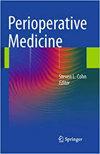Predicting blood transfusion needs in colorectal surgery at a university hospital in Saudi Arabia: insights into anemia, malnutrition, and surgical factors
IF 2
3区 医学
Q2 ANESTHESIOLOGY
引用次数: 0
Abstract
In Saudi Arabia, nearly a quarter of a hospital’s blood supply is consumed in operating rooms. However, blood is a scarce resource, and its unavailability has led to the cancellation of many surgeries. This study aims to identify risk factors for perioperative blood transfusion in colorectal surgery, thus providing valuable insights for better blood management and transfusion planning. We conducted a retrospective cohort study of patients who underwent colorectal surgery at King Abdulaziz University Hospital from 2013 to 2022. Data on patient demographics, comorbidities, surgical details, and transfusion outcomes were collected and analyzed. Statistical analyses included logistic regression to identify predictors of transfusion and over-transfusion. We collected data from 434 patients. Women were almost twice as likely (OR = 1.98; 95%CI = 1.35–2.90) as men to receive one or more units of RBCs. Also more likely to be transfused were patients with a higher ASA score; a lower pre-operative serum hemoglobin (Hgb) level; and malignant disease as the reason for surgery (all p < 0.001). On multivariable analysis, receiving a transfusion of packed blood cells (RBCs) was statistically linked to volume of intra-operative blood loss and Hgb level (both p < 0.001); as well as to pre-operative body mass index (BMI), with patients who were under-weight and of normal weight most at risk, and patients with a BMI between 25 and 35 less likely to be transfused. Patients whose pre-operative serum Hgb level was 12 g/dL or higher were more than twice as likely to not receive a transfusion, while those with pre-operative Hgb levels from 8.0 to 9.9 g/dL were three times more likely than not to receive blood, and those with a pre-operative Hgb under 8.0 g/dL almost five times as likely as not. Key risk factors for perioperative blood transfusion in colorectal surgery are preoperative anemia, diabetes, low BMI, and significant blood loss. Addressing these through a multidisciplinary approach and the development of perioperative protocols may reduce transfusion needs. Future prospective studies are needed to validate these findings and refine transfusion risk assessments.预测沙特阿拉伯一所大学医院结直肠手术的输血需求:对贫血、营养不良和手术因素的见解
在沙特阿拉伯,一家医院近四分之一的血液供应是在手术室消耗的。然而,血液是一种稀缺资源,血液供应不足导致许多手术被取消。本研究旨在确定结直肠手术围手术期输血的风险因素,从而为更好的血液管理和输血计划提供有价值的见解。我们对 2013 年至 2022 年期间在阿卜杜勒阿齐兹国王大学医院接受结直肠手术的患者进行了一项回顾性队列研究。我们收集并分析了患者的人口统计学、合并症、手术细节和输血结果等数据。统计分析包括逻辑回归,以确定输血和过度输血的预测因素。我们收集了 434 名患者的数据。女性接受一个或多个单位红细胞的几率几乎是男性的两倍(OR = 1.98;95%CI = 1.35-2.90)。此外,ASA评分较高、术前血清血红蛋白(Hgb)水平较低、手术原因为恶性疾病的患者也更有可能接受输血(P均<0.001)。在多变量分析中,接受包装血细胞(RBC)输血与术中失血量和血红蛋白水平(均 p < 0.001)以及术前体重指数(BMI)有统计学联系,体重不足和体重正常的患者风险最大,而体重指数在 25 到 35 之间的患者输血的可能性较小。术前血清红细胞水平为 12 g/dL 或更高的患者不接受输血的几率是其他患者的两倍多,而术前血清红细胞水平为 8.0 至 9.9 g/dL 的患者不接受输血的几率是其他患者的三倍,术前血清红细胞水平低于 8.0 g/dL 的患者不接受输血的几率几乎是其他患者的五倍。结直肠手术围手术期输血的主要风险因素是术前贫血、糖尿病、低体重指数和大量失血。通过多学科方法和制定围术期规程来解决这些问题可减少输血需求。未来需要进行前瞻性研究来验证这些发现并完善输血风险评估。
本文章由计算机程序翻译,如有差异,请以英文原文为准。
求助全文
约1分钟内获得全文
求助全文

 求助内容:
求助内容: 应助结果提醒方式:
应助结果提醒方式:


